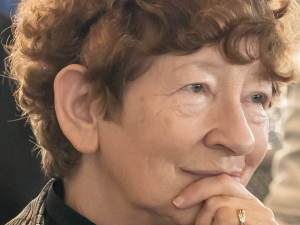Title: “Regular” CS × Inclusive Design = Smarter Students and Greater Diversity
Event Actions
“Regular” CS × Inclusive Design = Smarter Students and Greater Diversity
Abstract:
What if “regular” Computer Science (CS) faculty each taught elements of inclusive design in “regular” CS courses across an undergraduate curriculum? Would it affect the CS program’s climate and inclusiveness to diverse students? Would it improve retention? Would students learn less CS? Would they actually learn any inclusive design?
This talk describes the outcomes of 613 students who experienced the course offerings of the 13 CS faculty who tried this approach. These faculty integrated elements of inclusive design from the GenderMag inclusive design method into 44 CS/IT offerings across a 4-year curriculum. The results exceeded our wildest hopes! Among them were significant improvements in student retention, their grades, their ratings of their faculty, and their ratings of the education climate’s inclusiveness. Further, the students later acted on what they learned -- the software products they created were judged by inclusive design experts (who were blind to the before vs. after condition) to be more inclusive that the software products of the students who had come before.
The talk also describes how the 13 faculty acquired the skills they needed to learn to succeed at this endeavor, with a reasonably low amount of effort. To equip them for success, we created a faculty workshop curriculum that helped pair CS faculty -- including non-HCI faculty -- with inclusive design elements they chose for their own courses. The faculty workshop curriculum equipped 88% of these faculty with enough inclusive design teaching knowledge to successfully embed actionable inclusive design skill-building into 44 of their CS/IT course offerings across the CS curriculum.
Finally, the talk takes a peek at future directions. This talk is part of my “change the world for the better” agenda. Perhaps after you hear this talk, some of you in the audience will want to join me in this effort.
About the Speaker:
Margaret Burnett’s research runs the gamut of human-centric aspects of making software better for the people who use it, with an emphasis on inclusive design. She began her work in inclusive design by debunking the belief that software is gender-neutral. She then devised a set of a systematic methods to address inequities in software's user experiences. For example, she co-leads the team that created GenderMag (gendermag.org), a software inspection process that uncovers user-facing gender biases in software from smart systems to programming environments. She is now working on SocioeconomicMag, a systematic method which aims to find and fix software's socioeconomic-inclusivity "bugs". Her work has impacted commercial software used by millions of people.
Burnett is a University Distinguished Professor in the School of EECS at Oregon State University. She holds 4 patents; has received 10 best paper awards/honorable mentions and 6 Long-Term Impact awards; and has received multiple mentoring, service, and research awards. She is an ACM Fellow, and was elected to ACM's CHI Academy in 2016 as one of the "principal leaders of the field" of HCI. In 2023, she became a member of the Academic Alliance on AI Policy (AAAIP).
Website:
http://web.engr.oregonstate.edu/~burnett/
